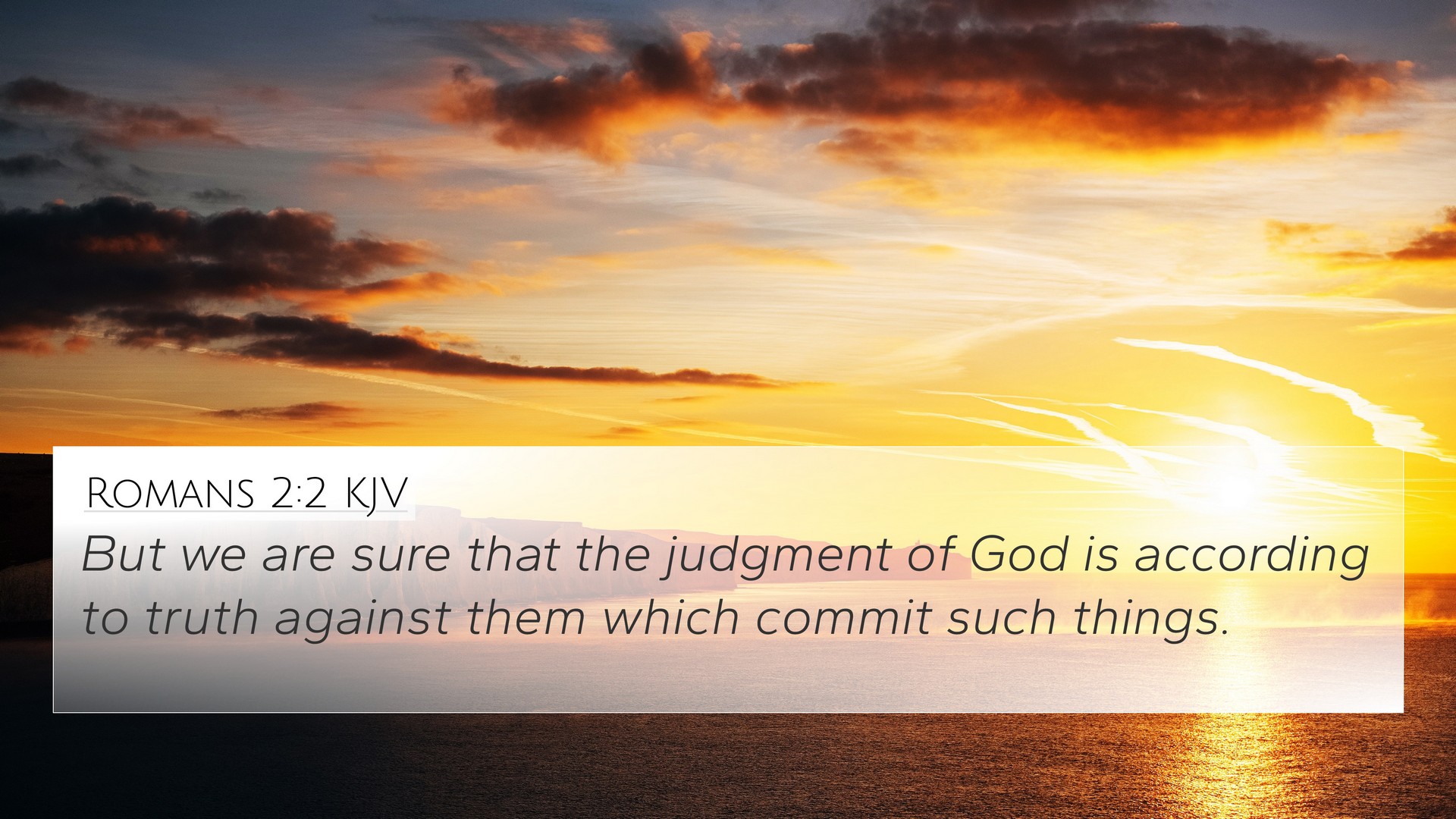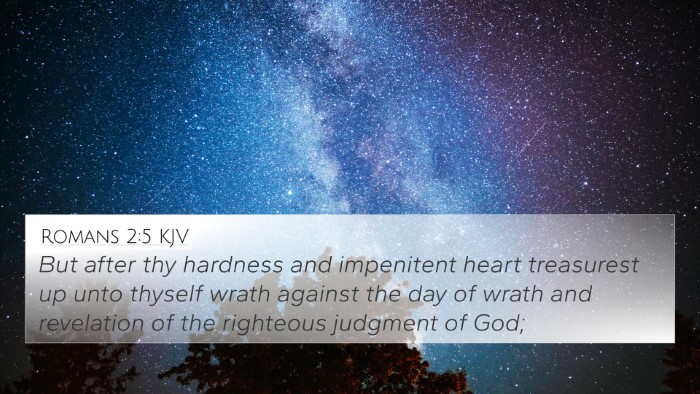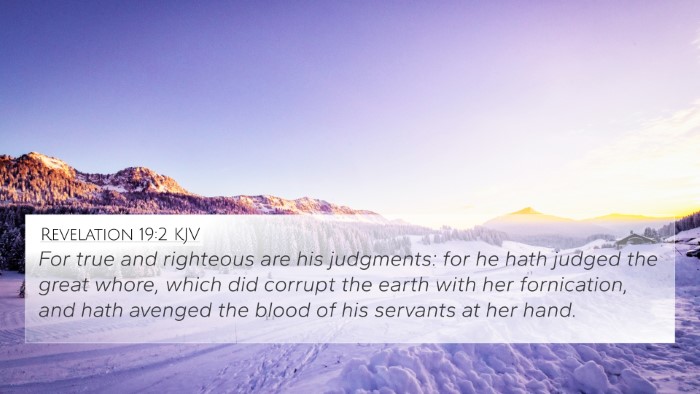Understanding Romans 2:2
Romans 2:2: "And we know that the judgment of God is according to truth against them which commit such things."
Summary of Meaning
The Apostle Paul, in Romans 2:2, underscores that God's judgment is impartial and based on truth. He emphasizes that God assesses human actions objectively, contrary to human perspectives which may often be biased or uninformed. This verse serves as an important reminder of the righteousness of God's judgment applicable to both Jew and Gentile alike.
Insights from Public Domain Commentaries
Matthew Henry's Commentary
Henry notes that this verse highlights the certainty and justice of divine judgment. God's judgment is never arbitrary but is measured against the truth of His word and righteousness. The acknowledgment of our collective sinfulness emphasizes the need for grace. Moreover, Henry elaborates on the idea that those who participate in wrongdoing, yet pass judgment on others, are condemned by their hypocrisy.
Albert Barnes' Notes on the Bible
Barnes reinforces the notion that the apostle is addressing those who are morally judgmental towards others while being guilty of the same sins. He highlights that the knowledge of God's judgment based on truth should lead to humility and self-examination rather than self-righteousness. The verse thus calls for accountability and an understanding that all human beings are subject to God's judgment.
Adam Clarke's Commentary
Clarke emphasizes that Romans 2:2 reflects a theological understanding of God’s judgment that is not merely punitive but also redemptive. He speaks to the implications of truth in judgment, asserting that it necessitates honesty in self-evaluation and repentance. Clarke points out that God's justice will ultimately reveal the true nature of human actions, and all will stand before Him to give account.
Thematic Connections
This verse ties into a broader theme of judgment and truth found throughout Scripture. Here are some related Bible verses:
- Psalm 9:8: "And he shall judge the world in righteousness, he shall minister judgment to the people in uprightness."
- 1 Peter 1:17: "And if ye call on the Father, who without respect of persons judgeth according to every man's work, pass the time of your sojourning here in fear."
- James 4:12: "There is one lawgiver, who is able to save and to destroy: who art thou that judgest another?"
- Matthew 7:1: "Judge not, that ye be not judged."
- Revelation 20:12: "And I saw the dead, small and great, stand before God; and the books were opened: and another book was opened, which is the book of life: and the dead were judged out of those things which were written in the books, according to their works."
- 2 Corinthians 5:10: "For we must all appear before the judgment seat of Christ; that every one may receive the things done in his body, according to that he hath done, whether it be good or bad."
- John 5:30: "I can of mine own self do nothing: as I hear, I judge: and my judgment is just; because I seek not mine own will, but the will of the Father which hath sent me."
Comparative Bible Verse Analysis
This verse encourages a comparative analysis of various scriptures that speak on judgement and adhere to the truth. By understanding the connections between Romans 2:2 and the verses above, one can appreciate the richness of biblical truth regarding God's impartiality in judgment.
Connecting Themes in Scripture
The themes of accountability and righteousness present a framework for understanding God's expectations of humanity:
- Justice: God's judgment is characterized by absolute justice, underscoring moral integrity (Isaiah 30:18).
- Truth: The essence of God's character is truth, guiding His judgments (Psalm 25:5).
- Fairness: God's evaluation of deeds emphasizes fairness devoid of human prejudices (Acts 10:34-35).
Tools for Bible Cross-Referencing
For deeper study, employing tools such as a Bible concordance or a Bible cross-reference guide can enhance understanding of Romans 2:2 and its implications in both the Old and New Testaments. Such tools help in identifying how various passages relate and connect, allowing for a comprehensive exploration of biblical themes.
Conclusion
In summary, Romans 2:2 serves as a pivotal reminder of the impartiality and truth of God's judgment. Through the insights from esteemed commentators and the connections drawn with other scriptures, we gain a holistic understanding of this profound biblical principle, emphasizing the importance of both judging and living in light of God’s truth.


























